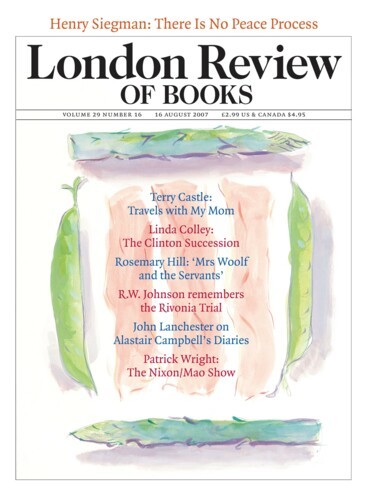I
Do you think of your saliva as a personal possession or as something you can sell?
What about tears? What about semen? Linguists tell
us to use the terms alienable and inalienable
to make this distinction intelligible.
E.g. English speakers call both blood and faeces alienable on a normal day
but saliva, sweat, tears and bowels they do not give away.
Bananas and buttocks, in Papua New Guinea, belong to the inalienable class
while genitalia and skin of banana are not held onto nearly so fast.
Such thinking will affect how a word like rape is defined
or how sorcerers aim their spells or how you feel in your mind
when you address animals. Of course cows and cats,
sheep, pigs, donkeys, dogs and rats
depend on their owner to keep or dispose.
But your pony you cannot sensibly classify with those.
II
Another thee.
A summer’s day.
Double vantage me.
Never to repay.
And Will in overplus.
Making addition thus –
your pony is all these to you – and more:
he can detect the smell of danger
and will not take you through a door
if there is doom or pain there.
So at the end of his life if you want to sell him for meat
you’ll have to change the pronoun with which you greet
at dawn his shaggy head,
at dawn his shaggy head.
III
A body in the dawn.
A body in the cold.
A body its breath.
Its breath a plume.
A dance a plume.
A dance not thou.
A thou, a thee.
Thou, breath.
There stands.
Breath, plume.
How cold is.
A dawn is.
How still stands.
Thy breath.
Send Letters To:
The Editor
London Review of Books,
28 Little Russell Street
London, WC1A 2HN
letters@lrb.co.uk
Please include name, address, and a telephone number.

